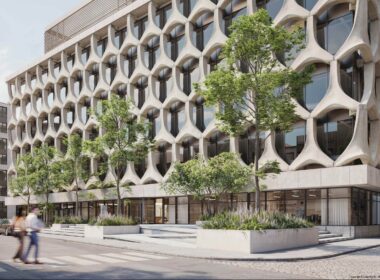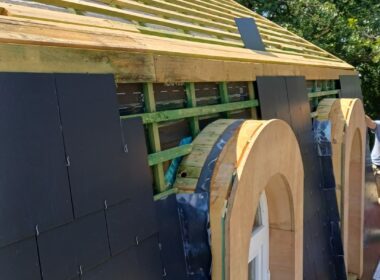Glass is an enormously versatile and durable product. For hundreds of years, it has been an essential part of many construction projects. It has always been used aesthetically but, in recent decades, glass has also played a crucial role in building sustainability. Moreover, glass is one of the most sustainable products in existence.
The first traces of glassworks date as far back as 1500 BC in Egypt. Since then, glass has been part of practically every structure. Glass is created by heating natural raw materials such as sand, silica, soda, and lime at a high temperature. Afterwards, it can be processed into the most diverse products such as flat and hollow glass, glass wool, fibreglass or cellular glass (‘glass foam’).
Insulation
Glass has excellent insulating values and can significantly improve the energy efficiency of buildings, seriously reducing costs for both heating and cooling. Insulating glazing is a type of window made of two or more sheets of glass with gas or a vacuum between the panels. This helps to reduce heat losses through windows, improving a building’s thermal efficiency. High-efficiency glass, with additional coatings to enhance its capabilities, helps keep a building’s interior temperature more stable, reducing the need for heating or cooling.
Glass wool and cellular glass are versatile insulation materials used to insulate walls, ceilings and floors. It is largely made from recycled glass and is an efficient insulator, having high thermal resistance. It can be used in cavity wall insulation, roof insulation and floor insulation.
The combination of insulating glazing and glass wool and/or cellular glass can significantly reduce energy costs. When these materials are installed during an energy renovation, a building can become up to 30% more energy efficient, also resulting in lower CO2 emissions.
Sustainable product
Moreover, glass itself is a tremendously sustainable product. For starters, glass has an incredibly long lifespan. It does not really suffer as a result of wear and tear and consequently lasts for years before it needs to be replaced.
Glass is infinitely recyclable, with no loss of properties. The quality necessary for optimal glass reuse is determined by proper collection and processing. The raw materials used to make glass such as sand and lime are also abundant and can be mined locally, minimising environmental impact. Glass manufacturers are, of course, fully committed to low-carbon production but, thanks to the positive effects of glass products in construction, the CO2 impact of production itself is also fully offset after only a few years.

In short, thanks to its many applications, the characteristics of energy efficiency, sustainable production, and recycling qualities, glass is one of the most sustainable products available.
Natural light
Glass allows natural light to enter our buildings. Natural light has numerous benefits for the health, well-being and productivity of people working or living in a building.
Natural light helps to improve health. Adequate levels of natural light can contribute to a better mood, less stress and better sleep. This is because natural light helps regulate the production of melatonin, the ‘sleep hormone’, in our bodies.
Natural light can also contribute to increased productivity. Studies have shown that people who work in a room with adequate natural light perform better than those who work in a room with little natural light. This is because natural light helps our bodies regulate the biological clock, making us feel more alert and thus better able to concentrate.
And of course, natural light can also help save energy. When enough natural light enters buildings, there is a reduced need for lighting and this can lead to lower energy costs.
Author: Thomas Pollet, Glass Specialist & Digitalization Manager at FIV, the Belgian Glass Industry Federation
Read also: Moment-resisting joints in timber construction; Infrastructures “in between” and the role of placemaking in the circular transition; What future for sustainable construction?; Materatek, a space for achieving your sustainable ambitions



